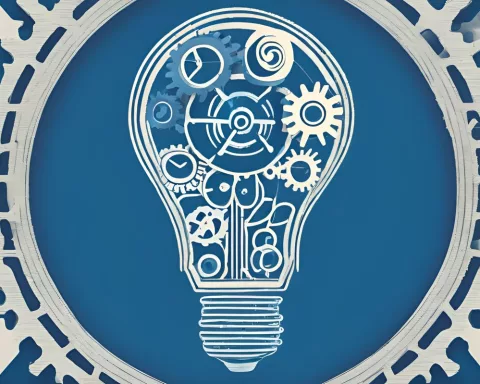The Southwest Gauteng TVET College Welding Trade Test Centre in Soweto, South Africa, is a symbol of hope amidst societal challenges. It offers accessible, quality education in welding work and aims to break the cycle of poverty and inequality in the township. The centre aligns with Nelson Mandela’s legacy of fostering education and social unity and signifies the government’s commitment to enhancing the post-school education and training system. The partnership between the Transport Education and Training Authority and the South West Gauteng TVET College paves the way for revolutionizing skills development and boosting the economy.
The Southwest Gauteng TVET College Welding Trade Test Centre in Soweto, South Africa, represents hope amidst societal challenges. Its establishment signifies a turning point in the narrative of high unemployment rates and poverty levels in townships, and lays the foundation for revolutionizing skills development. This centre aligns with the memory of Nelson Mandela’s dedication to fostering education and social unity and pays tribute to his legacy by offering accessible, quality education. The centre offers theoretical and practical training in welding work, leading to a Trade Test Certificate, highly coveted by employers.
A Beacon of Hope Amidst Social Challenges
Taking inspiration from the timeless African proverb that says, “Education is not about filling a bucket, but about igniting a fire,” it is with great honor that we welcome the grand opening of the Southwest Gauteng TVET College Welding Trade Test Centre in Soweto, South Africa. Standing as the 35th Trade Test Centre in the country and Soweto’s pioneer, its establishment represents a shining symbol of hope amidst significant societal hurdles.
The inspirational institution stands as a living embodiment of the unyielding quest for education and training accessibility for the majority of South Africans. Situated in a township, the centre strategically offers a route for residents to break free from the persistent cycle of poverty and inequality, a distressing reality known too well among various societal sectors.
In South Africa, urbanization is rapidly transforming townships into vibrant economic hotspots. Soweto, as an instance, is displaying enormous potential for economic advancement. However, the full realization of this potential hinges on the urgent requirement for skill enhancement and training. Recent research exposes a glaring gap in skills and knowledge within township economies, greatly hindering their progress and development.
Changing the Narrative of Unemployment and Poverty
Venturing deeper into the narrative, the grim reality of high unemployment rates and poverty levels in many townships surfaces as severe challenges. Yet, the opening of the new Trade Test Centre marks a turning point in this narrative. It lays the foundational stone in revolutionizing skills development in Molapo and Soweto as a whole.
The inauguration of this centre aligns with the touching memory of the passing of South Africa’s iconic President, Nelson Mandela. His unwavering dedication to fostering education and social unity continues to inspire our actions, and the establishment of this centre pays tribute to his legacy by fostering accessible, quality education.
December also marks our celebration of social unity within the Post-School Education and Training (PSET) sector. Despite the progress achieved since apartheid’s end, South Africa continues to battle the weight of social inequality. Therefore, the centre’s launch is a timely and vital step in progressing towards national unity and development.
Elevating Skill Development and Social Cohesion
Fuelled by various initiatives of the ANC-led government, the centre targets to empower individuals, equipping them to be self-reliant and generate income to sustain their families. Furthermore, the centre signifies the government’s pledge to an enhanced, evolved, and responsive PSET system, as outlined in the National Plan for Post-School Education and Training.
The new facility is the outcome of a partnership between the Transport Education and Training Authority (TETA) and the South West Gauteng TVET College. It mirrors the government’s determination to restore the artisan training system and produce 30,000 artisans per annum by 2030. The centre is set to offer both theoretical and practical training in welding work, leading to a Trade Test Certificate, a qualification highly coveted by employers.
The South West Gauteng TVET College is strategically located to combat high unemployment rates by offering Occupational Skills Programmes and relevant trades. However, to reconcile the skills mismatch and boost the economy, we are designing the Master Skills Plan. This plan aims to efficiently and effectively align skills training with sectors identified as essential for the Reconstruction and Recovery Plan.
In addition to advancing skills development, the government is also investing in infrastructure to deliver quality teaching, learning, research, and innovation spaces. Moreover, the successful collaboration between the TETA and the TVET College validates the effectiveness of partnerships in attaining national development goals.
In summary, the inauguration of the Southwest Gauteng TVET College Welding Trade Test Centre marks a significant landmark in South Africa’s path towards inclusive growth and social development. It shines as a beacon of hope for Soweto’s residents, illuminating a path towards a brighter and more prosperous future.
What is the Southwest Gauteng TVET College Welding Trade Test Centre?
The Southwest Gauteng TVET College Welding Trade Test Centre is a new facility in Soweto, South Africa, that offers theoretical and practical training in welding work, leading to a Trade Test Certificate, a qualification highly coveted by employers.
What is the significance of the Southwest Gauteng TVET College Welding Trade Test Centre?
The Southwest Gauteng TVET College Welding Trade Test Centre represents hope amidst societal challenges and aims to break the cycle of poverty and inequality in the township. Its establishment lays the foundation for revolutionizing skills development, aligns with Nelson Mandela’s legacy of fostering education and social unity, and signifies the government’s commitment to enhancing the post-school education and training system.
What societal challenges does the Southwest Gauteng TVET College Welding Trade Test Centre address?
The Southwest Gauteng TVET College Welding Trade Test Centre addresses the societal challenges of high unemployment rates and poverty levels in townships in South Africa. It offers accessible, quality education in welding work and aims to empower individuals, equipping them to be self-reliant and generate income to sustain their families.
Who is the partnership between for the establishment of the Southwest Gauteng TVET College Welding Trade Test Centre?
The Southwest Gauteng TVET College Welding Trade Test Centre is the outcome of a partnership between the Transport Education and Training Authority (TETA) and the South West Gauteng TVET College.
What is the goal of the government in establishing the Southwest Gauteng TVET College Welding Trade Test Centre?
The government aims to restore the artisan training system and produce 30,000 artisans per annum by 2030 through the establishment of the Southwest Gauteng TVET College Welding Trade Test Centre. It also signifies the government’s pledge to an enhanced, evolved, and responsive Post-School Education and Training (PSET) system, as outlined in the National Plan for Post-School Education and Training.
What additional initiatives is the government taking to boost skills development and the economy?
In addition to the establishment of the Southwest Gauteng TVET College Welding Trade Test Centre, the government is designing the Master Skills Plan, which aims to efficiently and effectively align skills training with sectors identified as essential for the Reconstruction and Recovery Plan. The government is also investing in infrastructure to deliver quality teaching, learning, research, and innovation spaces.











